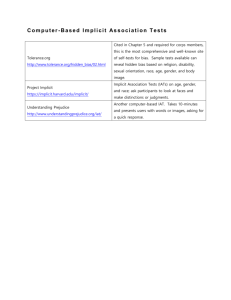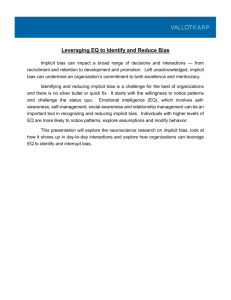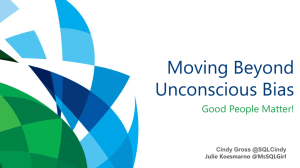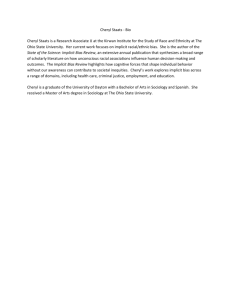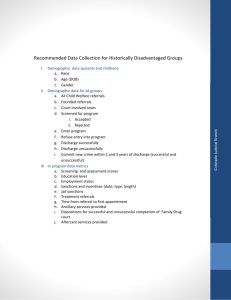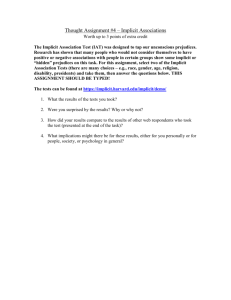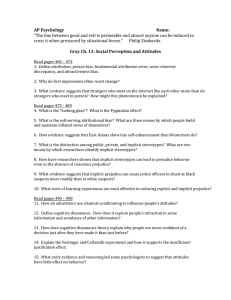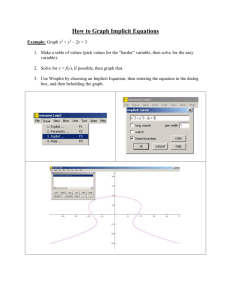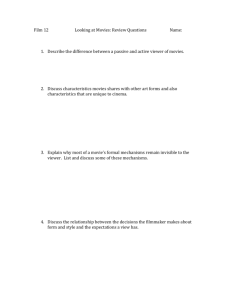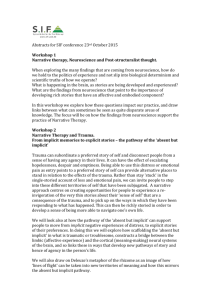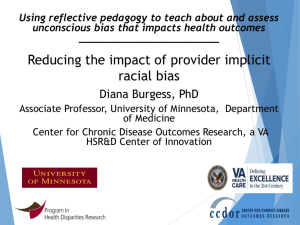Negativity Bias - The Power of Thinking Differently
advertisement
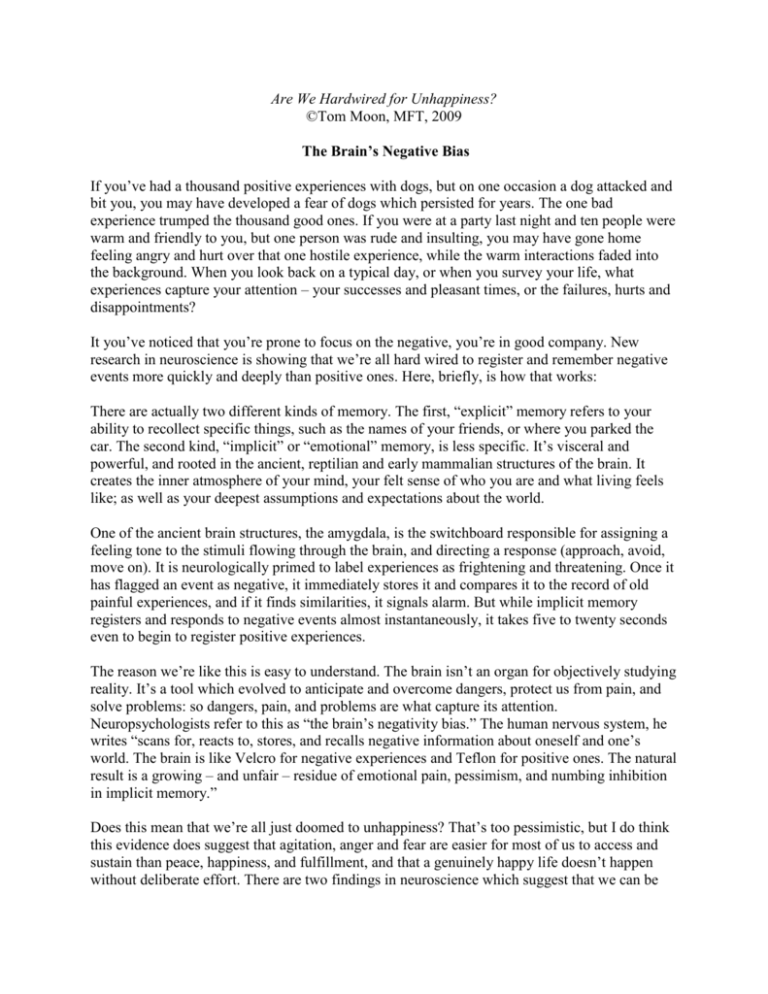
Are We Hardwired for Unhappiness? ©Tom Moon, MFT, 2009 The Brain’s Negative Bias If you’ve had a thousand positive experiences with dogs, but on one occasion a dog attacked and bit you, you may have developed a fear of dogs which persisted for years. The one bad experience trumped the thousand good ones. If you were at a party last night and ten people were warm and friendly to you, but one person was rude and insulting, you may have gone home feeling angry and hurt over that one hostile experience, while the warm interactions faded into the background. When you look back on a typical day, or when you survey your life, what experiences capture your attention – your successes and pleasant times, or the failures, hurts and disappointments? It you’ve noticed that you’re prone to focus on the negative, you’re in good company. New research in neuroscience is showing that we’re all hard wired to register and remember negative events more quickly and deeply than positive ones. Here, briefly, is how that works: There are actually two different kinds of memory. The first, “explicit” memory refers to your ability to recollect specific things, such as the names of your friends, or where you parked the car. The second kind, “implicit” or “emotional” memory, is less specific. It’s visceral and powerful, and rooted in the ancient, reptilian and early mammalian structures of the brain. It creates the inner atmosphere of your mind, your felt sense of who you are and what living feels like; as well as your deepest assumptions and expectations about the world. One of the ancient brain structures, the amygdala, is the switchboard responsible for assigning a feeling tone to the stimuli flowing through the brain, and directing a response (approach, avoid, move on). It is neurologically primed to label experiences as frightening and threatening. Once it has flagged an event as negative, it immediately stores it and compares it to the record of old painful experiences, and if it finds similarities, it signals alarm. But while implicit memory registers and responds to negative events almost instantaneously, it takes five to twenty seconds even to begin to register positive experiences. The reason we’re like this is easy to understand. The brain isn’t an organ for objectively studying reality. It’s a tool which evolved to anticipate and overcome dangers, protect us from pain, and solve problems: so dangers, pain, and problems are what capture its attention. Neuropsychologists refer to this as “the brain’s negativity bias.” The human nervous system, he writes “scans for, reacts to, stores, and recalls negative information about oneself and one’s world. The brain is like Velcro for negative experiences and Teflon for positive ones. The natural result is a growing – and unfair – residue of emotional pain, pessimism, and numbing inhibition in implicit memory.” Does this mean that we’re all just doomed to unhappiness? That’s too pessimistic, but I do think this evidence does suggest that agitation, anger and fear are easier for most of us to access and sustain than peace, happiness, and fulfillment, and that a genuinely happy life doesn’t happen without deliberate effort. There are two findings in neuroscience which suggest that we can be optimistic about changing our “happiness quotient.” The first is the principle of neuroplasticity, which refers to the fact that, throughout our lives, the way we use the brain actually alters its physical structure. The second is the discovery that the higher regions of the brain can modify the way the lower regions function. Many lines of research show that when we use our intention and attention in sustained and focused ways, we can do much to overcome the brain’s negative bias. What this means in practice is that if we are serious about striving for happiness we need a sustained intention to take the actions necessary to produce it, and we also have to devote regular attention to the positive events in our lives. Positive emotions promote energy and vigor, counteract depression and anxiety, increase overall resilience, and foster deeper connections with others. But they only have these beneficial effects if they register in implicit memory, and they can’t do that if we don’t notice them and give them our full attention. So, for instance, if I’m having a delicious lunch on the sunny patio of a restaurant, but my mind is occupied with gloomy ruminations about the past and dread of the future, the positive experience simply doesn’t register in implicit memory. As far as its effects on my inner emotional atmosphere are concerned, it is as if it never happened. The moral of the story is that if we want happier lives we can’t just let our minds do whatever they’re used to doing. We need to practice some kind of regular mental and emotional discipline to counter the brain’s negative bias.
